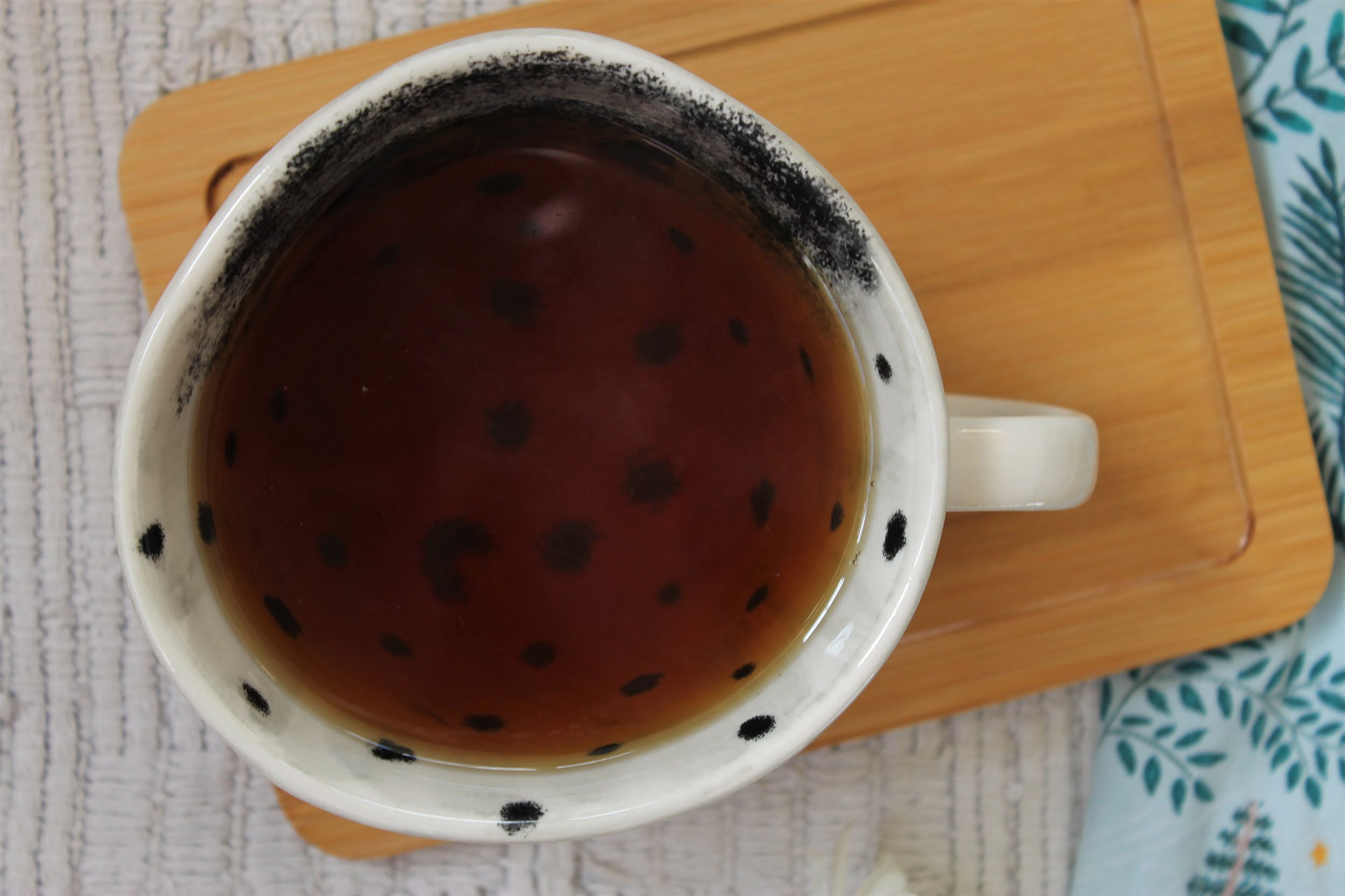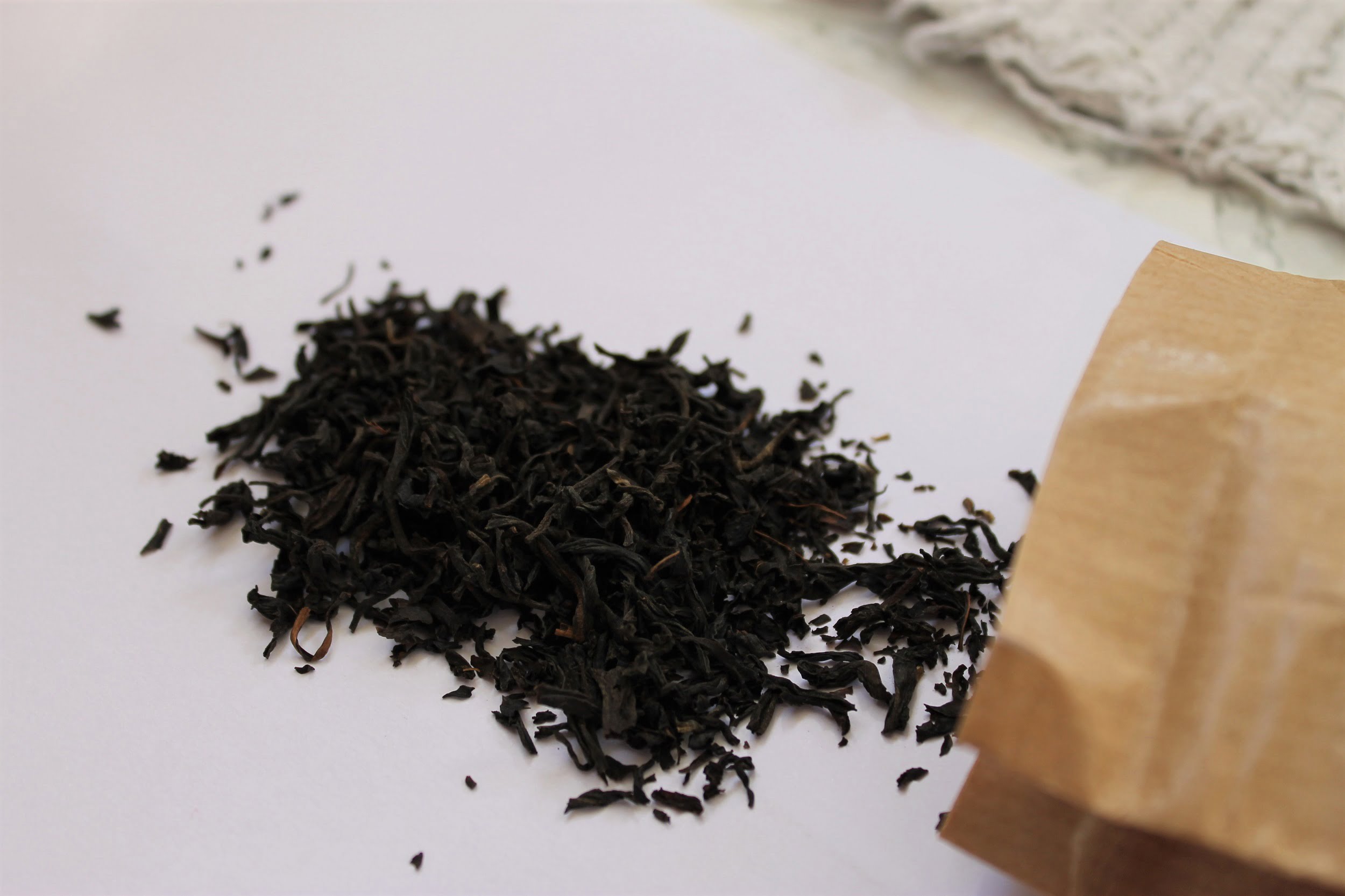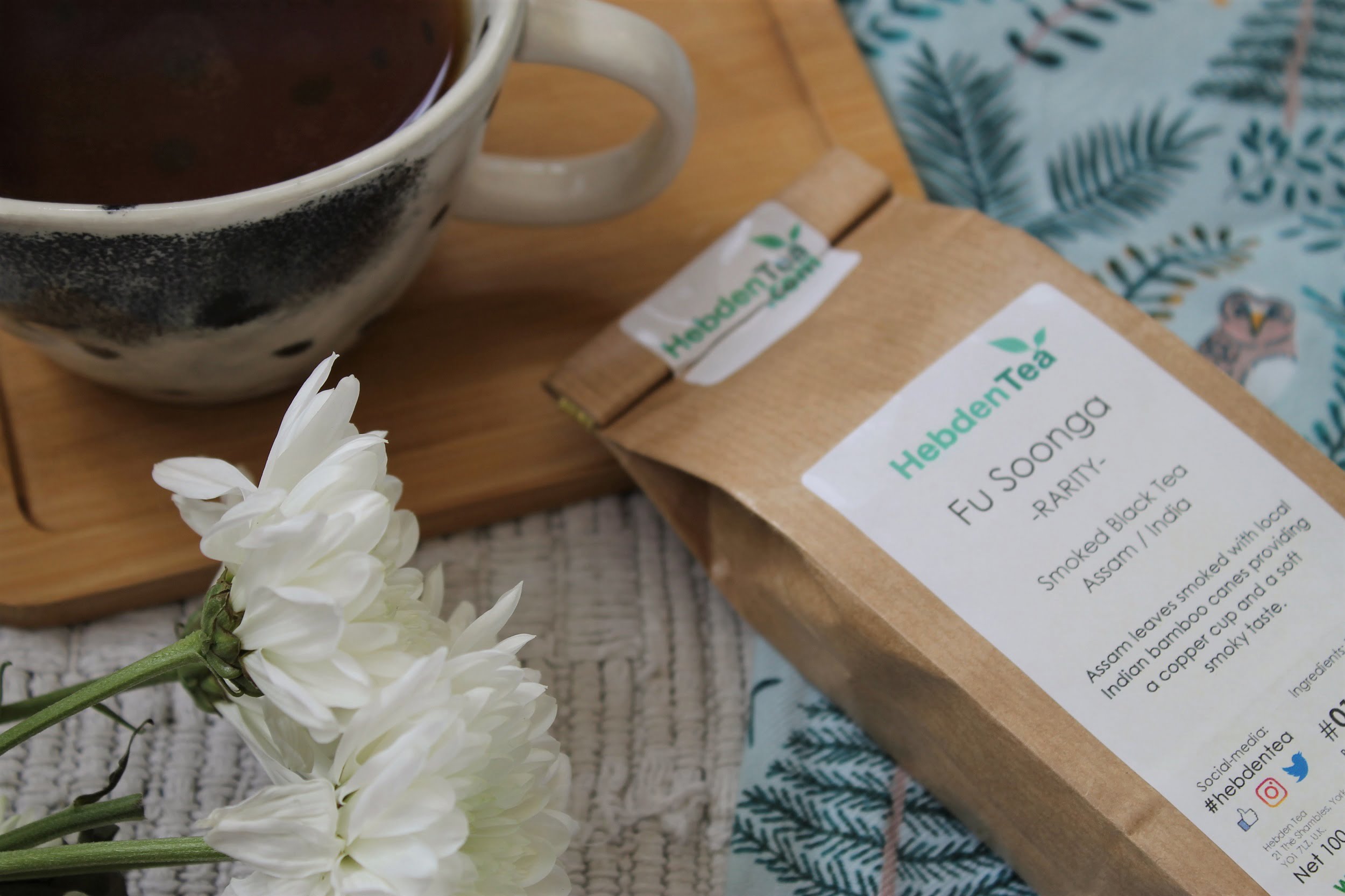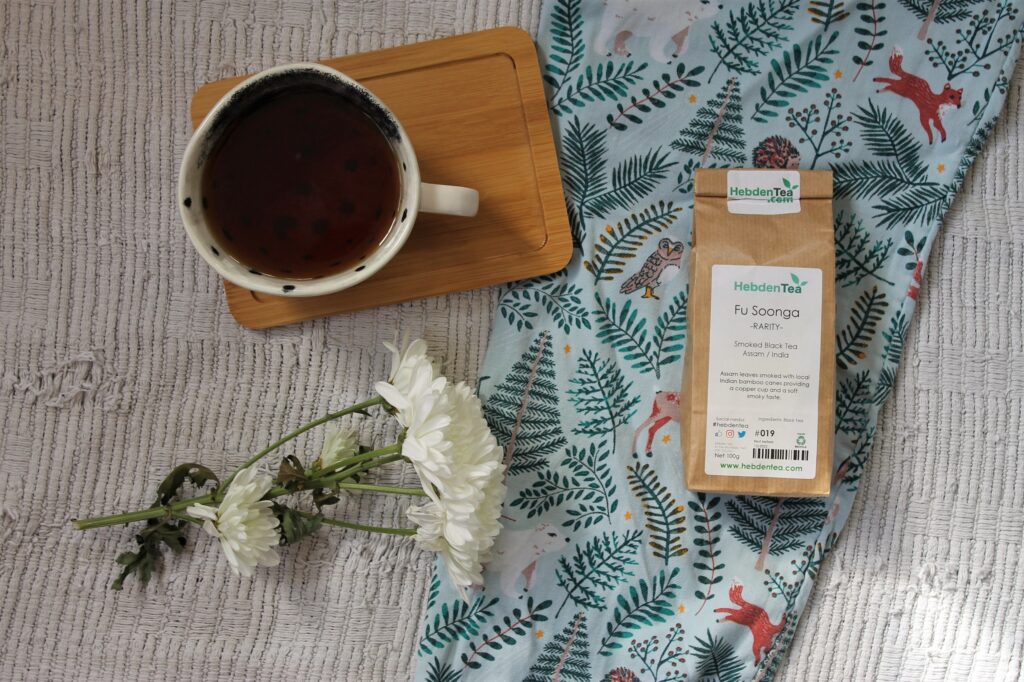On a daytrip to York, we stumbled upon this tiny but very well-stocked tea shop called Hebden Tea. Not only was it a quiet retreat from the incredibly packed cobbled streets, but it turned out to be quite the treasure trove of rare and enticing loose leaf teas.
Mindful of my overflowing bookcase (yes, really) of tea at home, I decided to settle on just one tea to try. The tea I took home with me was this one – Fu Soonga. I knew only what was written on the front of the package (pictured below) and I am certainly glad I have 100g of it to enjoy!
You can find links to buy this tea online below, directly from Hebden, but bear in mind that if it’s not currently in stock then you should definitely check out the other teas they have available.
Fu Soonga Rare Assam Tea at a Glance
- Origins: Golaghat subdivision of Assam, India
- Flavour: Warming Assam, softer than usual, and with a green smoke tint
The smokiness really softens and mellows the normally bold Assam tea, to create a complex and gentle black tea that’s really great for sipping and contemplating!


Full Review – Hebden Tea Fu Soonga
- Type: Loose leaf
- Tea: Smoked black tea
- Origin: Golaghat subdivision of the Assam region of India
- Flavour Notes: Warm, grassy bitter smoke, light tannins, light-bodied, complex
- Aroma: Subtle smoke, malty, woodchips, earthy, caramel
- Milk or Lemon: Neither
- Where to Buy: Hebden Tea
The initial aroma coming from the opened paper packaging is a little underwhelming. There’s a soft and gentle note of smoke with a few tannins and malty tinges coming through too. It’s certainly not the blow-your-socks-off aroma that you typically expect from an Assam tea!
It brews into a red copper colour with a golden orange tint at the edges. Once brewed, the tea and spent leaves give off a stronger aroma. The smoke smells slightly green, like fresh woodchips have been burnt rather than aged oak logs (growing up with a fire in the house, you come to know the difference well by nose). There’s also a slightly earthy and sweet note that reminds me of caramel.
As for the flavour, it’s really delicious and complex, but undeniably soft. Smoking the Assam tea leaves has really taken the edge off and we’ve lost a lot of that rich maltiness. What you’re left with is this light-bodied, complex and gently smoked flavour – slightly bitter and slightly grassy, like green wood.
Although this tea is a smoked tea and grown in Assam, it’s far from a Lapsang Souchong and doesn’t carry many of the hallmarks of Assam tea either. It’s utterly unique and fascinating!
I really enjoyed this tea and will save it for days when I can brew up a cuppa and really savour it.


How to Brew Fu Soonga
Hebden Tea give instructions for brewing on their website, but not on the tea packaging you receive. For Fu Soonga, use 1tsp of loose leaf per cup – around 2g. Your water temperature should be between 90°C and 100°C, then let it steep for 2-4 minutes.
My brewing method is 2g of loose leaf, 250ml of water, 95°C and a 2-minute brew time. I like my tea to be quite light, but you can certainly brew for longer. Unlike many smoked teas I’ve tried, this one doesn’t get too intense too quickly.
This tea does not need milk or sugar, but I think a slice of lemon could be pleasant. Don’t serve any strong foods with this one – I fear the Fu Soonga would be totally wiped out by competing flavours. Keep it light.
Why Hebden Tea?
Before stumbling onto Hebden Tea’s store in York, I had no idea they existed. But they are a well-established tea brand, beginning in the Yorkshire town Hebden Bridge in 2010 and now operating from York. They have a wide range of loose leaf teas available, including some rare single origin teas like this one, and some more mainstream blends and infusions. There’s also an extensive Earl Grey selection that’s caught my eye…


As for Fu Soonga, this tea is sourced from the Golaghat region of Assam in India. Instead of burning pine wood and needles (as is traditional for Chinese Lapsang Souchong) they burn Indian-grown woods and channel the smoke through bamboo canes and onto the tea leaves.
‘Fu’ means ‘blow’ and ‘Soonga’ means ‘cane’ so you can see where the tea got its name. The leaf quality, as shown in my photos, is pretty great although we don’t know the grade. There are a fair number of broken leaf pieces in there, amidst the whole leaves.
Summary
I really enjoyed this tea and I highly recommend it. If you’ve been put off by overly strong Chinese smoked teas in the past, this is a great way to ease yourself in to smoked teas in general. At the time of writing, Hebden Fu Soonga is out of stock, but I’ve included a link to the webpage anyway – just in case it comes back in the future.


Tea Recommendation
Another smoky tea that’s not too much is Tea Musketeers Avalanche Andrea! It’s one of their best blends and has notes of chocolate, to remind you of hot chocolate by the campfire. Utterly delicious. It’s blended in Oregon for all my US readers.
